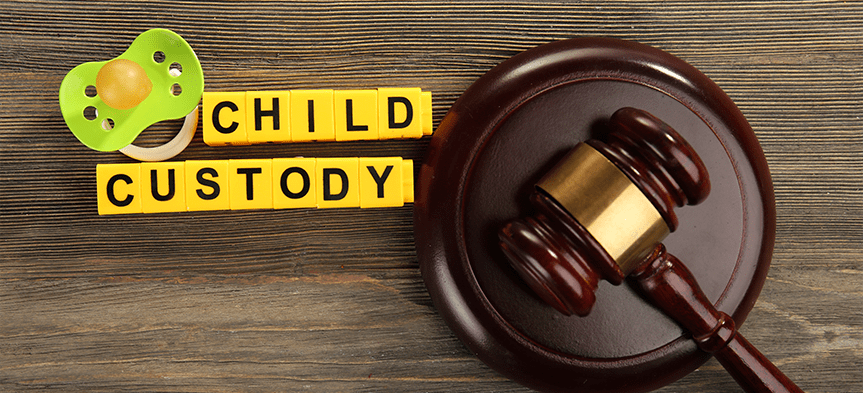Separating from a partner is never easy, but when children are involved the situation becomes far more complicated. Custody battles are emotional, stressful, and legally complex. Every parent wants what’s best for their child, yet courts must weigh each side fairly while prioritizing the child’s welfare. That’s where a child custody lawyer comes in.
A child custody lawyer specializes in representing parents during disputes about custody, visitation rights, and parenting responsibilities. They guide you through the legal system, protect your parental rights, and most importantly, work to ensure the best possible arrangement for your child.
In this in-depth guide, you’ll learn everything about child custody lawyers: what they do, why you need one, the different types of custody, the custody process, costs, and expert tips for choosing and working with the right attorney.
What Is a Child Custody Lawyer?
A child custody lawyer is a family law attorney who focuses on custody cases. They represent parents in disputes related to who gets physical custody, who makes important decisions for the child, and what visitation arrangements should look like.
Unlike general lawyers, custody attorneys have deep knowledge of state family laws and the court procedures related to children. They deal with highly emotional and sensitive matters, often where both parents strongly disagree.
Their responsibilities include:
- Filing petitions for custody or visitation rights
- Negotiating parenting agreements
- Presenting evidence in court
- Handling relocation disputes or modifications
- Ensuring compliance with child support orders tied to custody
A child custody lawyer acts as both a legal guide and a negotiator, helping parents avoid unnecessary conflict while focusing on the child’s best interests.
Types of Child Custody Explained
Custody isn’t a single arrangement it comes in different forms. Courts categorize custody into several types, and understanding them is essential before heading to court.
Legal Custody vs. Physical Custody
- Legal custody gives a parent the right to make decisions about the child’s health, education, and general welfare.
- Physical custody determines where the child lives day-to-day.
Parents may share both, or one parent may be granted sole authority depending on circumstances.
Joint Custody vs. Sole Custody
- Joint custody enables both parents to equally share their rights and duties.Courts prefer this when both parents are capable.
- Sole custody grants authority to one parent, often in cases involving abuse, neglect, or absence.
Temporary vs. Permanent Custody
- Temporary custody is granted during the case, often until a final ruling is made.
- Permanent custody is the long term decision given after court hearings or settlement.
Custody Types at a Glance
| Custody Type | Who Makes Decisions? | Where Child Lives | Common Use Case |
| Legal Custody | Parent(s) | Varies | Medical, school, religion |
| Physical Custody | Parent(s) | With one or both | Daily care |
| Joint Custody | Both parents | Shared | Cooperative parents |
| Sole Custody | One parent | One parent | Abuse/absence |
| Temporary Custody | Judge | Varies | During disputes |
| Permanent Custody | Judge | Final arrangement | Long-term stability |
Why You Need
Some parents think they can handle custody disputes without legal help. While it’s possible, the risks are significant. A custody lawyer provides several advantages:
Protecting Your Parental Rights
Courts focus on what benefits the child. Without a lawyer, you may struggle to prove your fitness as a parent. Lawyers ensure your rights are protected and fairly represented.
Navigating Complex State Laws
Each state has unique family laws. A child custody attorney understands local rules, precedents, and procedures, giving you a stronger case.
Representation in Court
Custody cases are emotional. A lawyer provides objective, structured arguments that judges take seriously.
Negotiating Fair Agreements
Many custody cases settle out of court. Lawyers negotiate parenting plans that balance parental rights with the child’s needs.
Case Example:
A father facing false neglect allegations hired a lawyer who presented school records, testimony from teachers, and evidence of active parenting. The judge dismissed the claims and granted joint custody. Without legal counsel, the father might have lost custody.
How to Choose the Right
Not all lawyers are the same. Choosing the right one can mean the difference between winning and losing custody.
Experience and Specialization
Look for lawyers who specialize in custody and family law rather than general practice.
Reputation and Reviews
Read online reviews, testimonials, and get referrals from friends or family. A good reputation signals reliability.
Communication Skills
You’ll be discussing sensitive topics. The lawyer should be approachable, empathetic, and responsive.
Costs and Payment Options
Understand fee structures: hourly rates, retainers, or flat fees. Always get a written agreement.
Checklist
- Specializes in family law
- Strong negotiation and trial experience
- Positive reviews and referrals
- Transparent about fees
- Communicates clearly and respectfully
Process Step by Step
Child custody cases follow a structured process. Understanding it helps you prepare emotionally and legally.
1. Filing a Custody Petition
A custody request is submitted to the family court by one of the parents.
2. Mediation
Courts encourage parents to work out agreements through mediation before trial.
3. Court Hearings
If mediation fails, hearings begin. Each parent presents arguments and evidence.
4. Custody Evaluations
Courts may order home visits, psychological evaluations, or interviews with the child.
5. Final Decision
The judge issues a custody order, which may be temporary or permanent.
Flow of the Custody Process
- File petition → 2. Mediation → 3. Hearings → 4. Evaluations → 5. Final order
Common Issues
Custody goes beyond deciding where a child lives. Lawyers also help with:
- Relocation disputes: One parent wants to move far away.
- Visitation rights: Ensuring non custodial parents get fair access.
- Child support and custody: Since financial support often depends on custody rulings.
- Order modifications: Changing custody due to new circumstances like job relocation or remarriage.
Costs of Hiring
One major concern is cost. Child custody lawyer fees vary depending on experience, location, and case complexity.
Average Costs
| Country | Hourly Rate | Typical Retainer | Total Case Cost |
| United States | $200–$500 | $2,500–$10,000 | $3,000–$20,000 |
| United Kingdom | £150–£350 | £1,500–£7,000 | £2,500–£15,000 |
| Canada | CAD 200–450 | CAD 2,000–8,000 | CAD 3,000–18,000 |
| Australia | AUD 200–500 | AUD 2,500–10,000 | AUD 3,500–20,000 |
Factors that increase cost:
- Highly contested cases
- Expert witness fees
- Multiple hearings
- Urban location (big cities cost more)
Money Saving Tips:
- Prepare documents before meeting your lawyer
- Use mediation instead of trial if possible
- Ask about payment plans
Tips for Working
Your relationship with your lawyer can make or break your case.
- Be honest: Don’t hide facts, even negative ones. Surprises in court harm your case.
- Stay organized: Keep a journal of visitation schedules, expenses, and communications.
- Put the child first: Judges notice when parents focus more on attacking each other than caring for the child.
- Stay professional: Avoid emotional outbursts during hearings. Let your lawyer speak for you.
Example:
One mother kept records of her child’s medical appointments, school attendance, and activities. Her lawyer used these logs in court to prove she was the more consistent caregiver, securing her primary custody.
FAQs
Is it absolutely necessary for me to hire an attorney for a child custody situation?
Yes, especially for contested cases. A lawyer increases your chances of a fair outcome.
Can I represent myself in court?
You can, but courts favor professional representation. Without legal training, you risk losing important rights.
How long does the process take?
It depends. Some cases finish in months, others take over a year. Factors include cooperation, complexity, and court availability.
What if my ex has a lawyer and I don’t?
You’ll be at a disadvantage. Judges may take represented parents more seriously.
Can custody orders be changed later?
Yes. If circumstances change, you can request a modification.
Final Thoughts
A child custody lawyer isn’t just a legal representative they’re your ally in one of the most important battles of your life. They guide you through complex laws, advocate for your rights, and most importantly, ensure your child’s well-being is prioritized.
If you’re facing custody issues, don’t face them alone. Research, choose wisely, and consult a trusted child custody lawyer who can fight for your rights while keeping your child’s best interests at the heart of the case.



